Human, Monkey, Cow, Pig, Goat, Rat, Mouse, Guinea pig, and Frog Anti-Cytokeratin Antibody Product Attributes
Cytokeratin Previously Observed Antibody Staining Patterns
Observed Subcellular, Organelle Specific Staining Data:
Anti-KRT4 antibody staining is expected to be primarily localized to the intermediate filaments. There is variability in either the signal strength or the localization of signal in intermediate filaments from cell to cell.
| Cytokeratin General Information | |
|---|---|
| Molecular Weight | |
| Multiple | |
| Chromosomal Location | |
| Multiple | |
| Curated Database and Bioinformatic Data | |
| Gene Symbol | Multiple |
| Entrez Gene ID | 3851 |
| Ensemble Gene ID | ENSG00000170477 |
| RefSeq Protein Accession(s) | NP_002263 |
| RefSeq mRNA Accession(s) | NM_002272, |
| RefSeq Genomic Accession(s) | NG_007380, NC_000012, NC_018923 |
| UniProt ID(s) | B4DRS2 |
| UniGene ID(s) | B4DRS2 |
| HGNC ID(s) | 6441 |
| Cosmic ID(s) | KRT4 |
| KEGG Gene ID(s) | hsa:3851 |
| General Description of Cytokeratin. | |
| Twenty human keratins are resolved with two-dimensional gel electrophoresis into acidic (pI 6.0) subfamilies. This antibody recognizes acidic (Type I or LMW), basic (Type II or HMW) cytokeratins, including 59kDa (CK4); 58kDa (CK5); 56kDa (CK6); 52kDa (CK8); 56.5kDa (CK10); 53kDa (CK13), 45kDa (CK18). This is a broad-spectrum antibody, which has been reported to differentiate epithelial tumors from non-epithelial tumors. Many studies have shown the usefulness of keratins as markers in cancer research, tumor diagnosis. | |

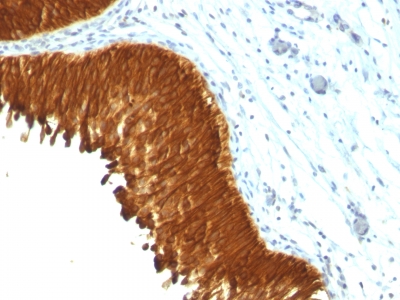

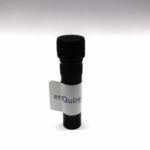
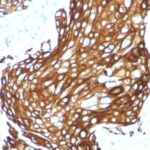
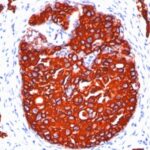
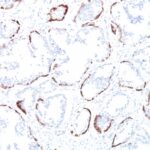
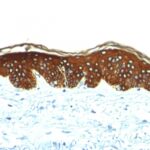
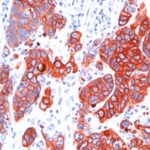
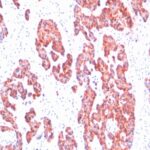
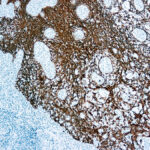
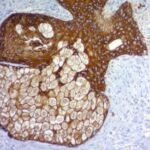
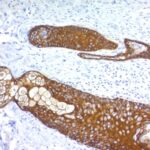
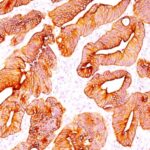

There are no reviews yet.